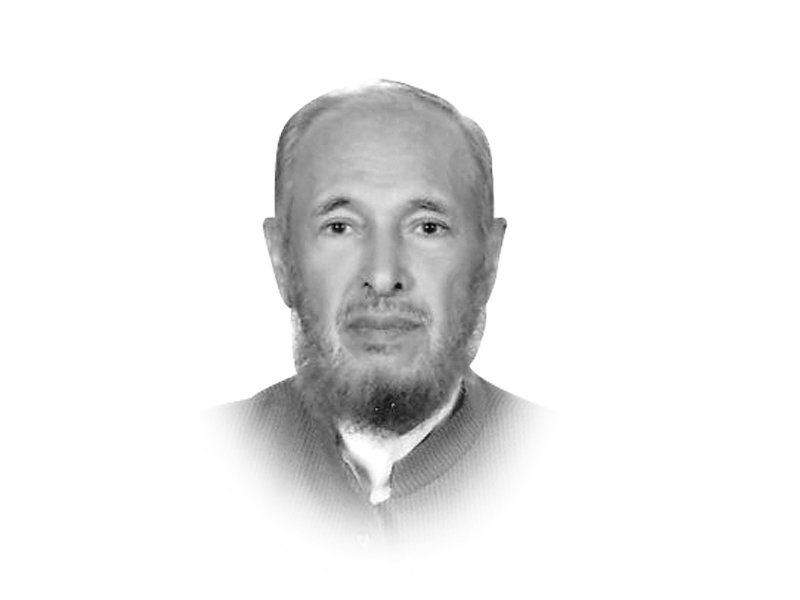
The Afghan president, as part of a new endeavour to engage the resistance, made a determined bid to have Pakistan on board in order to win maximum support for the new initiative. Fortunately for Dr Ghani, he found a more than enthusiastic response from the Pakistan government, including the military leadership. As a matter of fact, the army chief is one of the most ardent supporters of reconciliation with the resistance as a means of bringing peace to the border areas, where Pakistan continues to deploy troops at a great cost to the exchequer. But for all the fanfare associated with renewed peace efforts, there has been, so far at least, no formal contacts of the Afghan government with the resistance. The much talked-about Doha talks were in fact just an informal interaction. The more recent meeting of ‘Taliban’ leaders with Chinese officials in China was a significant step in inducting the Chinese leadership in the process of reconciliation in Afghanistan. China’s agreeing to a role of a mediator, in the complex Afghan imbroglio, stems from geo-strategic compulsions like: concerns about the rising tide of militancy in its western Xinjiang region; protecting its economic interests in Afghanistan where it has made huge investments particularly in minerals; countering the US policy of containment by reaching out to its regional neighbours and lastly by creating an environment that is conducive not only to peace in Afghanistan but also to the complete withdrawal of foreign forces from Afghanistan. The Afghan Taliban would welcome the Chinese mediation role because there is a belief in the cadres of the movement that Beijing would not be intimidated by pressure from Washington. All these are good omen for genuine peace parleys to begin in a spirit of mutual understanding of each other’s position. But any approach that ignores some fundamental realities would not culminate in a broader understanding or bring the parties nearer to a solution.
In the conference at Doha, the resistance reiterated a demand that has been voiced ad nauseum by the movement about the complete withdrawal of all foreign forces from Afghanistan before they would agree to entering into formal negotiations for ending the conflict. This has been the movement’s uncompromising stand in any talks. The meeting in China was attended on behalf of the movement by leaders whose credentials to speak on behalf of the central leadership are open to question. Even the group at Doha, currently in charge of interacting with a host of interlocutors, is at times not wholly in consonance with the central shura that alone takes decisions on critical issues confronting the movement. More importantly, the Taliban question the wisdom of Dr Ghani seeking to open talks with them on the one hand and going to Washington to urge the US to delay the withdrawal of forces on the other.
Further trouble has arisen because of Pakistan’s policy — long characterised by waverings and vacillations. In a statement in Kabul recently, Pakistan’s prime minister called the acts of the Taliban resistance acts of terrorism. This, rather than enhancing Pakistan’s credibility as a mediator, has caused incalculable damage to its stance. Supporting one group or faction disproportionately vis-a-vis others in Afghanistan, has been the bane of Pakistan’s policy. Many in Afghanistan, including the Pukhtuns, do not view with favour the role that Pakistan ought to play in the grand reconciliation. But the indisputable fact remains: without Islamabad’s involvement and participation, no sustainable solution to the crisis can be found or implemented.
The issue of the exit of all foreign forces within an agreed time frame has to be addressed first and foremost. Pakistan has the right to demand that Afghan soil would not be used against its interests directly or by stealth. But beyond that Islamabad must acknowledge that Kabul has the right to construct relationships with regional countries on the basis of mutual interests. People in Afghanistan get worried when Islamabad appears to determine the nature and contours of Kabul’s policies or its relations with India. The Afghan temperament was poignantly demonstrated a few months ago when Pakistan’s adviser on foreign affairs made a statement in Washington stressing that Pakistan would not countenance the re-emergence of Taliban as the rulers in Kabul — a statement that was intended to reassure the US authorities as well as Kabul of Pakistan’s current stance on the shape of future Afghan government. But promptly came a stunning rebuttal: the presidential spokesman in Kabul rejected the statement saying it is the people of Afghanistan who have the right to decide who rules Afghanistan.
For a policy of mediation to deliver, the Pakistani leadership must align itself completely with the aspirations and dreams of millions of rank and file Afghans. It must also acknowledge that brute force has not, and perhaps would not, subdue a resistance that has gathered momentum rather than abating after 13 years. Pakistan must not ignore the reality that the resistance has control over 62 per cent of the territory and that scores of attacks are launched every day against government and coalition forces. The fact that an astounding number of troops are leaving the security forces must also weigh in the calculations of Islamabad as it formulates its response to the situation evolving in Afghanistan. Pakistan must stand with the government and people of Afghanistan in trying to craft a package of actions that would comprehensively address all issues.
Published in The Express Tribune, June 9th, 2015.
Like Opinion & Editorial on Facebook, follow @ETOpEd on Twitter to receive all updates on all our daily pieces.













COMMENTS (11)
Comments are moderated and generally will be posted if they are on-topic and not abusive.
For more information, please see our Comments FAQ